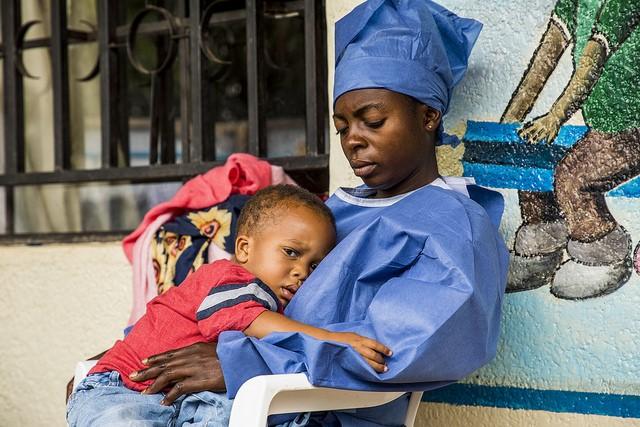Over the weekend and through today, the ministry of health of the Democratic Republic of the Congo (DRC) recorded 25 new Ebola cases from towns and cities across North Kivu and Ituri provinces, including two in Beni and one in Lubero. The rest of the cases originated in current hot spots, including Katwa and Butembo.
The spike in cases pushed the outbreak total over the 1,000-case milestone as it enters its eighth month. This is the DRC's 10th and largest Ebola outbreak, and the second biggest in history.
The outbreak now stands at 1,016 cases, of which 951 are confirmed and 64 are probable. A total of 634 deaths have been recorded, and 226 suspected cases are still under investigation.
Call on community to end outbreak
On Sunday, DRC health minister Oly Ilunga Kalenga, MD, issued a statement on the 1,000 case milestone.
Though he noted that more than 91,000 people have been vaccinated against the virus, and patients in Ebola treatment centers (ETCs) have a 60% survival rate, healthcare workers will not be the key to ending this outbreak.
"The response begins at the level of the mother who brings her sick child to the health center and accepts that a sample is taken for the laboratory. It is also based on the head of the family, who accepts that all family members are vaccinated after one of them has been infected with Ebola," Kalenga said.
Since Friday, several of the deaths recorded have taken place in the community, which increases the risk of spread among case contacts.
Vaccination with Merck's VSV-EBOV vaccine is ongoing. As of today 91,286 people have been vaccinated, including 22,708 in Katwa and 21,056 in Beni.
Groups weigh in on milestone
The 1,000-case milestone brought with it a renewed public commitment from the World Health Organization (WHO).
"This outbreak has gone on far too long. We owe it to the people of North Kivu to work with them in solidarity not only to end this outbreak as soon as possible, but to build the health systems that address the many other health threats they face on a daily basis," said Tedros Adhanom Ghebreyesus, PhD, WHO director-general.
In a statement from the International Rescue Committee (IRC), which is helping 59 facilities in the outbreak region with infection control and working to protect women and children, Tariq Riebl, IRC's Emergency Response Director in the DRC, said the 58 cases recorded in the last week show an alarming spike in activity.
He also said that, given the violence and community mistrust of response workers, more cases are likely unreported.
"We are already almost seven months into this outbreak and at this stage we should be seeing the case rate declining, not on the rise. With an optimistic outlook this outbreak is predicted to last another six months—but realistically we could be looking towards another year of fighting this disease," Riebl said.
See also:
Mar 24 DRC report
Mar 25 DRC report
Mar 23 WHO statement
Mar 24 IRC statement



















